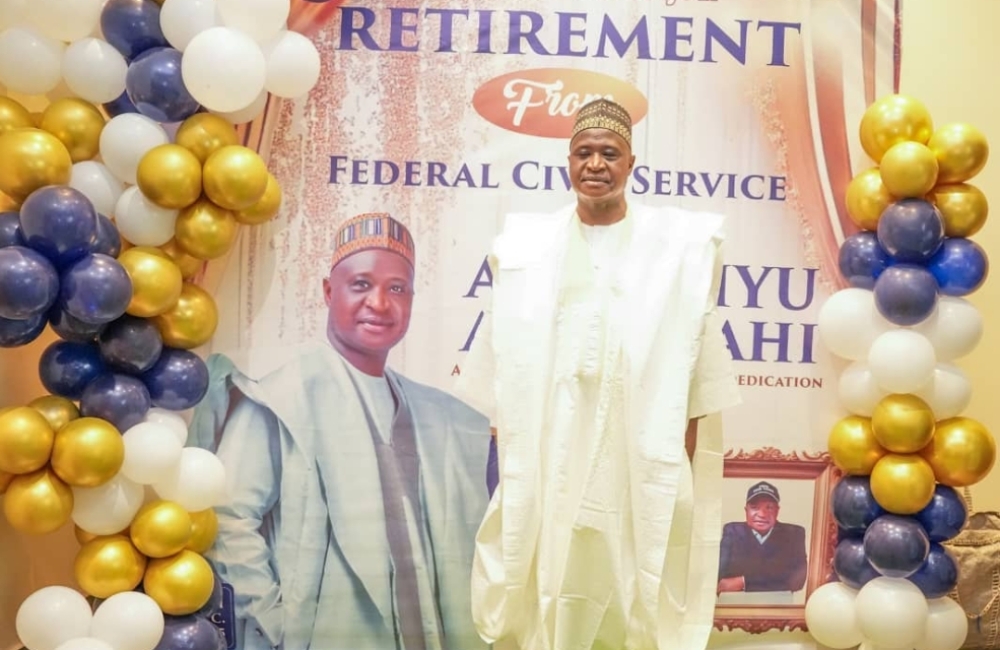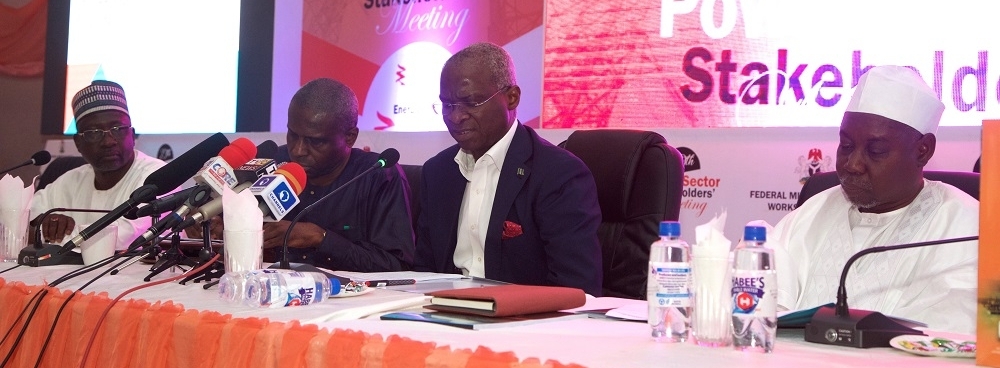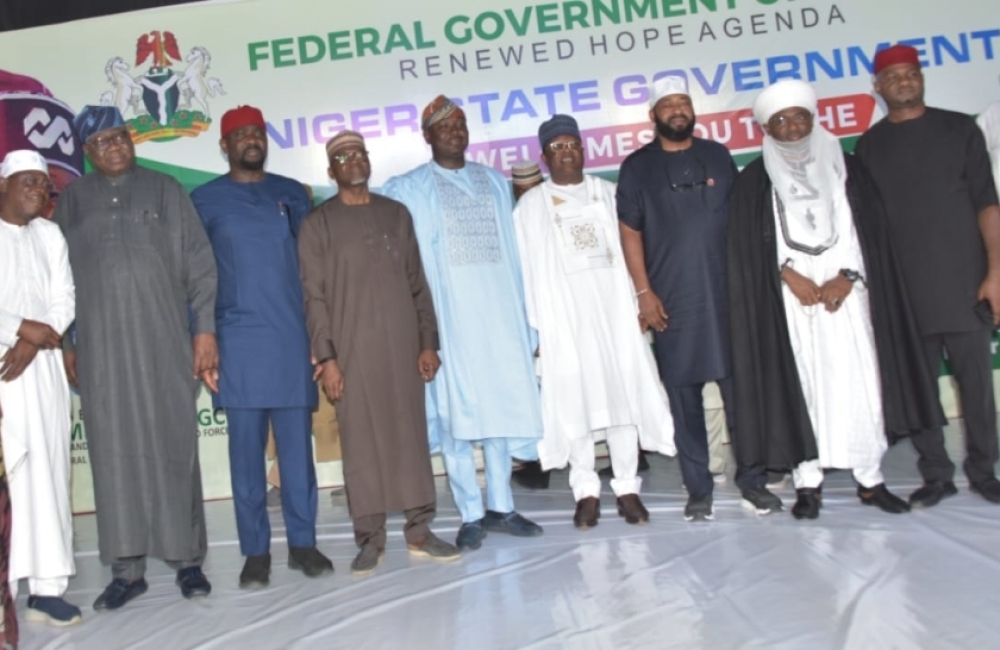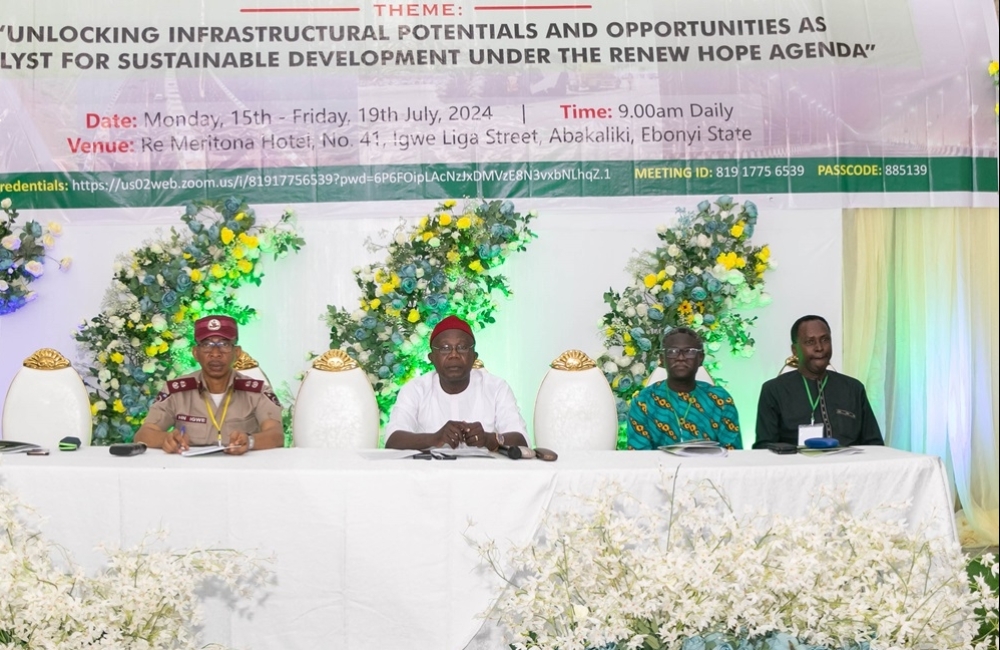Remarks Of The Honourable Minister Of Power, Works And Housing At The 29th Monthly Power Sector Meeting Hosted By Mainstream Energy (Concessionaires Of Kainji And Jebba Hydro-Power Stations) In Niger
In lieu of our monthly meeting for July 2018, I opted to brief the public about our progress so far in our journey to incremental power towards steady and, finally, uninterrupted supply.
In the process, I highlighted the challenges we have overcome and those we are dealing with, and what needs to be done and who has the responsibility to do so.
Those who know and who genuinely desire to solve problems in this industry do not need to be told that the most pressing challenge of the Sector today lies at the Distribution end.
Amongst the challenges at this sector of the value chain, (and there are problems in Gas, Generation and Transmission), the most urgent are Distribution of available energy to consumers, and there is an unused energy in the region of 2,000 Megawatts in this category.
The other, of course, is the supply of meters to consumers. These two issues of power distribution and supply of meters rank highest in the feedback from the stakeholders in the industry.
In order to address these challenges and find solutions to them, I issued policy guidelines and directives to appropriate institutions for them to act.
It is in this context that I think it is fortuitous that Mainstream is our host today, because my remarks will focus on the review of progress we have made with some of our policies.
I have always insisted that there must be methods to decision making, and this includes evaluation of decisions to see how they have progressed and what needs to be added or modified.
Therefore, we must understand that policies are not an end in themselves . Policies represent an expression of our hopes and aspirations and must be embraced, nursed and nurtured to deliver on all their capacities and possibilities.
In a sense, I liken policies to the human being. At birth, he represents the hopes of parents for tomorrow. Left alone, that infant is helpless, so he is dependent for feeding, clothing and all survival needs until he becomes ambulatory, able to stand, walk, talk, run, and matures into adulthood.
With this analogy in the background, I will address the progress of some of our policies for the benefit of members and the larger public.
A) N701 Billion Payment Assurance Guarantee
This was not in any law. It was a creation of the Buhari Government to give comfort to investors in the Generation side of the value chain that they will be paid for supplying power.
Since its implementation in 2017, recovery of payments by GENCOs has increased from 20% to 80%; and power supply capacity has improved from 4,000MW to 7,000MW and there is an appetite by other players to participate.
Is it perfect? Certainly not.
Do the GENCOs like it? I am sure that they will tell that 80% recovery is better for business than 20% recovery, but they would rather have 100% recovery.
But this is only one side of the coin. The other side of the coin is that GENCOs must transparently invoice for their output and, for example, we must harmonise the price of gas for payment under the scheme, where there are differential prices arising from different Gas suppliers.
Therefore, we must work as the parents and owners of the policy to nurture and improve on its capabilities.
B) Eligible Customer
This was introduced on 15th of May 2017, and the Regulations to govern it were issued by NERC on 1st of November 2017.
The purpose was, amongst others, to improve distribution side of electricity and facilitate better power supply to consumers who consumed up to 2MW and above.
From reports reaching me, 5 (FIVE) industrial customers are now benefitting from the policy and taking their power directly from a GENCO, who incidentally is our host today, Messrs Mainstream Energy Ltd.
We also have a list of 26 (TWENTY-SIX) industrial customers who are seeking to benefit from the policy.
The DISCOs must be interested to know that I have also issued directives to NERC to work out and implement Competition Transition Charges as provided by Law, to safeguard them from any losses.
We will continue to monitor the impact of the policy and remain flexible to keep what works and change what does not; and I urge everybody to remain open-minded, adaptive and responsive.
C) Meter Asset Provider (MAP)
This policy was introduced to address the meter supply gap, relieve the DISCOs of the financial burden of meters, allow entrepreneurs to take up this as a business and diversify the sources of meter supply.
The Regulations and Condition for its operation were issued by NERC on 8th March 2018.
Reports reaching me indicate that there is an embracement of the policy. Entrepreneurs are showing interest and talking to banks to raise finance.
Some DISCOs have signed up to the Government-Supported fund of N37 Billion and we will keep an eye on the progress of the initiative.
Government intervention in this regard is part of its role of enabling to be effective. It does not relieve the DISCOs of their contractual obligation to provide meters.
On the contrary it seeks to help them perform their contract.
D) Energising Educational Institutions and Markets
These are Government-led initiatives based on the Rural Electrification plan approved by the President in 2016 to provide access to power for rural dwellers and vulnerable members of our society.
We proposed to use 6 (SIX) small hydro dams that had been abandoned for decades, Federal Government owned universities and some markets as anchors.
Apart from the Universities, where Government is directly funding the intervention, the markets are being privately funded, contrary to the untrue allegations that have been made in the media, and I challenge those who made the allegation to provide proof to the contrary.
There are currently 15 (FIFTEEN) markets under contemplation with Ariaria, Sabon Gari and Sura markets in Aba, Kano and Lagos as flagships.
The 6 (SIX) hydro dams are to be concessioned to private operators to build, operate, and transfer.
Our thinking is simple. While the whole value chain and power privatization gradually evolves, it is possible to create Oases of success by showing to our children that they can have reliable power while in school.
If that is a reason to get children to school and keep them there, certainly, no good business can oppose this.
Indeed, it seems to me sensible to expect that the future of today’s business and even Government, rests solely on the quality of education that the current generation of students get.
As for the markets, the 37,000 shops in Ariaria, about 13,000 in Sabon Gari, and about 1,000 in Sura represent SMEs, where the majority of our people earn a living.
They are currently paying for expensive power from small and environmentally unfriendly generators.
It seems to me that our nation will have come to their aid if we deliver reliable power to the most vulnerable like them.
Ladies and Gentlemen, this is my update about the progress of our policies and the rationale behind them.
I welcome you to this meeting and wish us fruitful deliberations.
Babatunde Raji Fashola, SAN
Honourable Minister of Power, Works and Housing
Monday 13th August 2018







